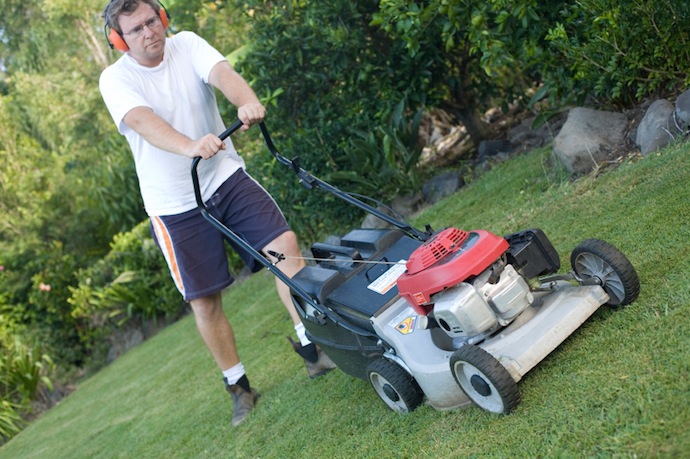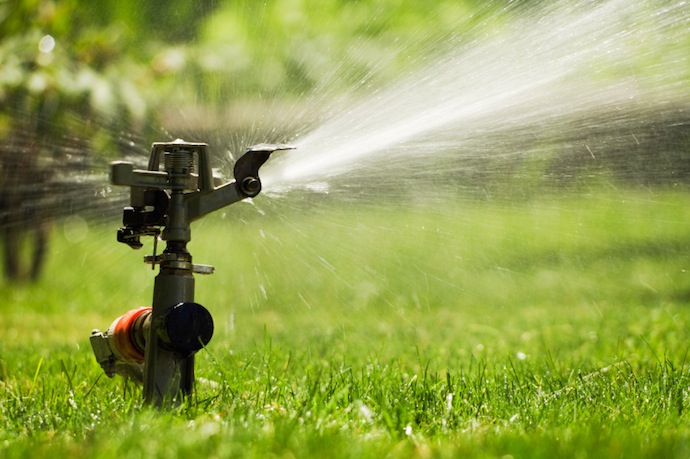When you imagine owning a beautiful lawn, what do you picture? Throwing the football around, tossing a Frisbee to your dog and watching the kids run through the sprinklers? How about daydreams of pushing a lawnmower in the hot sun and scratching your head over fixes for the yellow grass?
The choice to own a lawn is trickier than many homebuyers realize. Consider these five questions when deciding whether a lawn is right for you.
1. How Will Your Lawn Affect the Environment?
If you live in a drought-prone region, owning a large area of grass will make water conservation a challenge. Your preferred lawn maintenance materials and fertilizers also could be harmful to the environment.
On the other hand, grass does have environmental benefits. It can improve air quality by trapping dust and smoke particles, absorb carbon dioxide and sulfur dioxide, and produce oxygen, said Ryan Farley, co-founder of lawn care startup LawnStarter.
“Lawns also absorb rainwater, helping to prevent soil erosion and water runoff,” Farley added.
To get a better idea of the environmental impact of a particular lawn, consider the water availability in your area, your lawn’s size and your lawn care routine.
2. Can You Commit to the Costs and Maintenance?
There’s no getting around it: Lawns mean more expenses and more work.
“In places like Los Angeles … it costs roughly 50 cents per square foot to water a lawn for a year,” said Jessyca Frederick, co-founder of Water Wise Now, which helps homeowners use less water for landscaping. And that doesn’t include the price of the mower, aeration, fertilization, over-seeding and dethatching.
Of course, if you’re short on time, hiring a lawn care service is a good option. If money is an issue, you can take on these tasks yourself and avoid costly lawn services by sticking to a solid maintenance routine.
“The longer you wait [between lawn care sessions], the more TLC your lawn will eventually require,” Farley said.
3. Does the Lawn Come With Special Challenges?
If you’re not up for extra attention and work, steer clear of problematic lawns.
While a large tree in the middle of your lawn might be appealing, you’ll need to devote special attention to ensuring the grass underneath is getting enough sunlight and water. Farley also noted that large hills can make lawns more difficult to maintain.
Have your heart set on the yard with the majestic oak?
“It’s certainly an uphill battle, but there are ways to grow healthy grass in the shade,” Farley said.
He stressed the importance of choosing the right grass blends and keeping up with the proper mowing, aerating and fertilization.
4. How’s the Irrigation System?
Many existing irrigation systems are installed incorrectly, which can contribute to lawn problems. Frederick recommended inspecting a lawn’s irrigation system before committing to a new home.
“Turn on each station at the controller, look for nozzles spraying in the wrong places, geysers, and water running into the street,” she said.
You also can hire a professional water auditor to look for underwater leaks and damage in the system.
5. What Does Your Family Need?
Activities like barbecuing or picnicking “just aren’t the same on asphalt,” according to Farley. As great as it is to keep practical considerations in mind, don’t ignore the emotional and personal reasons for wanting a lawn.
Can’t come to a decision? Depending on the property you’re considering, paring down your lawn space could provide a happy medium. Or you might even look into xeriscaping, a landscaping technique that reduces or eliminates reliance on grass.
“Consider whether your budget allows you to remove the lawn in the front yard and reduce extraneous square footage in other places,” Frederick said.







